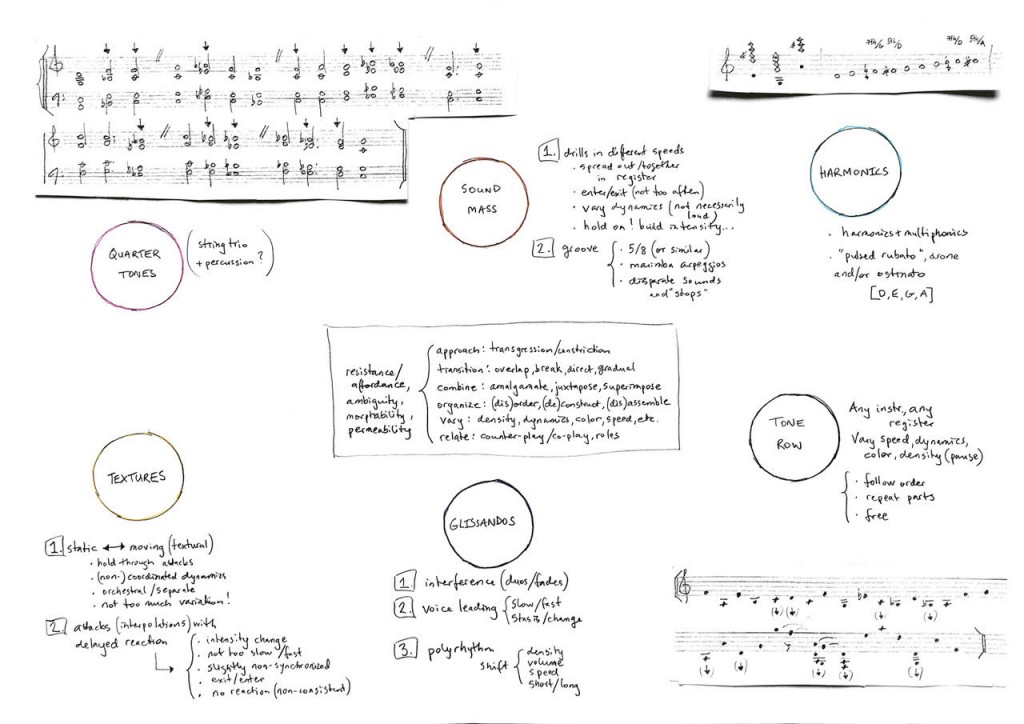Since the last session, Klas was invited to present our project at The AEC European Platform for Artistic Research in Music (EPARM) Conference 2017, which took place at the Royal Conservatoire in Antwerp from 20th to 22nd April, under the title “Staging Research: from the laboratory to the stage and back again”. The fifth biennial EPARM conference welcomed music researchers, educators and/or performers to a three day exploration of the current state of affairs of the relation between artistic research performed at the academia and the implications on the field of music production, and vice versa. Besides presenting the process of the project, Klas discussed how the interaction between research, artistic production and audience is essential to our project. Examples were given from our experiences of doing “pedagogical concerts”, thus combining musical performance with demonstrations and discussions for/with the audience/participants around collective creativity. He also discussed the challenges and possibilities of presenting our research on stage, as well as thoughts for working with an “open laboratory”, guided by a nomadic ethics that is congruent with the project’s main theme of collective creativity. By participating in this conference we received valuable ideas and suggestions for further development!
Lab Days # 6 – Nathan Milstein Hall, Royal College of Music in Stockholm
For our last Lab Days before summer we invited Lotte Anker and Lê Quan Ninh to join the eight instrument strong Revoid Ensemble. Lotte is a marvelous saxophone player and composer that I have been admiring at a distance for some time, and in connection to this project I have been listening a lot to her album “What River Is This?”. Percussionist Lê Quan Ninh was brought in on the suggestion of our cello/voice artist Audrey Chen. As preparation for our days together with him I’ve been listening to his wonderful playing and also reading from his interesting and inspiring text “Improvising Freely: the ABCs of an Experience”.
Central to our research at this point is developing a kind of modular approach in which different pre-conceived materials (“modules”) are seen as “playgrounds” that can attract the attention of the players and bring out a specific sound in the ensemble, or perhaps serve as injectors changing the direction of an improvisation. Any player can engage in any module at any time and the other players reacting by joining or counter playing is optional.
Above is Klas’ score that we used for this occasion, the titled circles represent the different modules and have different materials, in musical notation and/or written instruction, connected to them. Some have suggestions pertaining to instrumentation, for others there are different alternative ways of arriving at a specific sound. In the middle we see a set of terms to investigate. To the left are concepts relating to experienced musical qualities (“resistance/affordance”, “ambiguity”, “morphability” and “permeability”), and to the right are practical suggestions that could enhance those qualities and that has to do with how we “approach”, “transition”, combine”, “organize”, “vary” and “relate” materials and/or instruments.
My experience when working with this score is that the modules substantially contributes to the piece without coming in the way of the airiness and openness of the improvisation. There are no sharp boundaries as to what is pre-conceived and what is inspired by the moment. I think it has to do with the combination of concrete materials and open and suggestive instructions, as well as the clear intention of not arriving at specific “versions” to be revisited, but rather to continue improvising with everything from small detail to big form. I felt it worked really well for organizing even a huge ten-piece improvising orchestra like ours, favoring focus and playfulness at the same time. Great fun!
-Ricard Österstam
